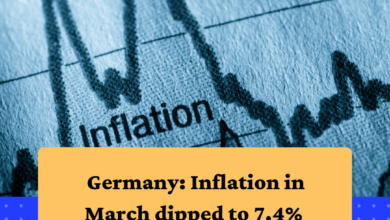Berlin Set to Cancel the €29 Travel Pass?
Why is Berlin Set to Cancel the €29 Travel Pass?
Berlin’s €29 monthly travel pass, known as the Berlin-Abo, is coming to an end. Introduced in July 2023 to make transportation more affordable, this pass became popular among Berlin residents. However, financial pressures have led the coalition government of the Christian Democrats (CDU) and Social Democrats (SPD) to discontinue it as part of widespread austerity measures. Here we will let you explore the reasons why is Berlin set to cancel the €29 Travel Pass.
Reasons to Cancel €29 Ticket
1) Budget Cuts Force Tough Choices
Berlin’s overall plan includes axing its 2025 budget by an amount of €3 billion out of a total of nearly €40 billion. The ticket is annual expenditure, which it estimated around €300 million annually, and it has now deemed unsustainable against the backdrop of these financial challenges.
Senator for Economic Affairs Franziska Giffey (SPD) said that it was not an easy decision. Instead, funds were provided more on the social programs along with families and children, rather than continuing subsidies for the public transport. The government had to make some hard choices after all in order to deal with the fiscal deficit in the city-and one of the casualties was the €29 ticket.

2) Current Subscriptions to Continue
Although the number of subscriptions is to be decided on termination, existing ones will still be valid until the end of their subscribed period. This was also stated in the paper for the decision by the Berlin Senate that also ordered the city’s transport operator, BVG, to carry out the cancellation “as soon as possible.” The exact time frame for a discontinuation remains unknown, though.
Features and Popularity of the €29 Travel Pass
1) Cost-effective yet Comfortable
The €29 travel pass offers free travel on all buses, the U-Bahn, trains, trams, and ferries within Berlin’s AB zones. This made it very accessible to residents, especially those not eligible for or cannot afford company-subsidized travel passes, as well as those who cannot afford the nationwide Deutschlandticket.
2. Comparison with the Deutschlandticket
The Deutschlandticket is costing €49 a month (to rise to €58 from January 2025); this includes travel on local public transport in Germany. Although more ambitious, the Berlin-Abo was for those seeking a budget ticket suitable to people living within cities.
Political Background: The €29 Ticket and the SPD
1) A Promised Election Policy
The €29 ticket was first introduced temporarily in 2022 following the success of Germany’s €9 travel ticket. As soon as it became evident that it was popular, the SPD brought it back as an election promise in the Berlin repeat elections of 2023.
As much as the SPD lost the election, they managed to engage the CDU in a form of negotiation about including the €29 ticket in their coalition deal. It basically showed their stand on fare affordability and rationalization, particularly for the low-income population.
2) Flop Attempts to Save the Pass
By October 2023, the pass had approximately 210,000 subscribers, hence proving to be very popular. In a bid to make the program sustainable, members of SPD advocated that the monthly fee be raised to as much as €39 for it to become more viable. The proposal did not stick, and the coalition settled on discontinuation as the only financial solution.
Impact on Society and Economy
This cancellation of the €29 travel pass has sparked related debates on social equity and government priorities. In fact, critics argue that the decision disproportionately affects low-income households who rely more on affordable public transport. For most people, for instance, the pass stood for much more than a financial advantage-it stood as a lifeline toward mobility and access to important services.
At the same time, there is defense that the money could well be needed to be diverted to other social programs that will fill a similar need, such as an expansion of daycare and other cultural initiatives.
Lessons from Public Policy
Abolition of the €29 ticket presented an idea of struggling between fiscal responsibilities and social welfare. It accentuates the need for sustainable program designs that will ride out financial crunch while satisfying public demand.
What’s Next?
1) Alternative options remain for the residents of Berlin once the €29 pass fades away. The residents would have the Deutschlandticket, and other existing options. However, policymakers might need alternative solutions that cater to the city’s persistent demand for cheaper public transport services.
The cancellation of the Berlin-Abo propels questions about the long-term sustainability of public transport subsidies and what governments may do to also guarantee fair access to these essential services. It will certainly have a bearing on future conversations about transport policies in Berlin and beyond.
Berlin’s €29 travel pass finally comes to an end. The decision reflects the pressing financial realities of the city but also highlights the need for balancing fiscal constraints with the demand for mobility by the public. While Berlin makes progress, residents and policymakers must navigate these implications to seek innovative solutions that remain accessible and equitable with public transport. The legacy of the €29 ticket will continue to shape debates about transportation affordability, social equity, and fiscal responsibility in Berlin.
Read More at How to Abroad
Germany’s Housing Benefit to increase at the start of 2025
Deutschlandticket to increase to 58 Euros per month Starting in 2025









